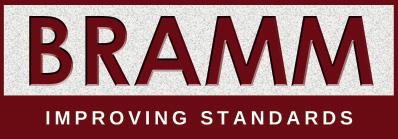54
The ICCM Journal | Autumn 2020 | V88 No. 3
my journey through the pandemic A lot of people have asked me how I was coping with the lockdown and my response has been what lockdown. The entire funeral sector has been in the forefront and sadly this has really not been recognised. We fully appreciate the NHS being recognised but at the same time, in my view the government should have acknowledged the critical role played by our sector. If we had not played our part effectively, you would have had much longer delays in burials, critical storage issues and families being deprived of burials taking place in accordance with their beliefs and wishes. When the Covid 19 bill was presented, I remember there was so much alarm as councils were given the authority in legislation to dispose of the deceased in whatever manner they deemed fit. This raised huge concerns in faith and non-faith communities. There were headlines that people will be buried or cremated against their wishes and this resulted in absolute panic within communities, none more so than the Muslim Community. This became even more of an issue when there were press reports that suggested bodies were being piled up high in mortuaries or in make shift storage areas in mosques. This painted a very bleak picture for the community. For our community we had to come up with a strategy to deal with our faith requirements under very difficult circumstances. We • • • • • •
had to consider the following: Quick burials Ritual washing Storage facilities Family participation Final prayer PPE
We produced guidance for our community immediately in terms of what to do with the preparation of the deceased taking into account the guidance given by PHE. We quickly realised that burials within 24hours was not going to happen. Storage facilities would be an issue and above all participation from families would be difficult. We had to manage the expectations of families that they will not be able to meet the strict requirements of our faith fully. However, this was a pandemic and our scholars had given rulings that allowed us the flexibility that was required. What challenges did we face? Quick burials – Normally we would be burying within
24 hours wherever possible. This was not going to be the case for a number of reasons (delays in paperwork, collection and burial space). Storage – Most of the hospital and public mortuaries were full and the additional storage spaces were either not in place or locations which were very far from the place of death. Preparation of the deceased – It is a fundamental requirement to prepare the body before burial and the very mixed messages being received at that time both from PHE and the medical profession did not help. Final Prayer – This is an obligation. Without this the burial cannot take place. Quick burials – The registrars and most of the bereavement offices were very good but because of the sheer volumes, there were delays. At the height of the pandemic the delay in burial from date of death was 7 days but that was for a very brief period of time. Cemeteries were at first very slow to react in terms of increasing their capacity. We, at Gardens of Peace, being the largest dedicated Muslim Cemetery in the country, stepped up to the challenge to ensure that burials could take place as quickly as possible. Under normal circumstances we would do around 3 – 4 burials a day. We started to increase this to 8 burials a day to ensure that the delay in burial was kept to a minimum. This was not enough and at the height for 2 weeks we increased our capacity to 20 burials a day. This helped to reduce the burial waiting times to a minimum and the most families had to wait was for 3 days. It was our desire to ensure that every family was given an opportunity to attend the funeral and witness the burial. We wanted them to have closure. At one stage we had contemplated mass burials, but fortunately this was not necessary and we had taken a conscious decision that we would only resort to that if the death figures became unmanageable. We had geared our resources to undertake if necessary, 30 burials a day. We hired additional diggers and equipment and suffice to say that we had no help from the council except providing us with numbers for contractors who could assist us with the digging at a cost. Preparation of the deceased – This was a very difficult area. We had people in the hospital saying that you should not touch a Covid 19 death; it should remain in a sealed body bag and immediately needed to be taken for burial. We worked tirelessly with PHE and other















